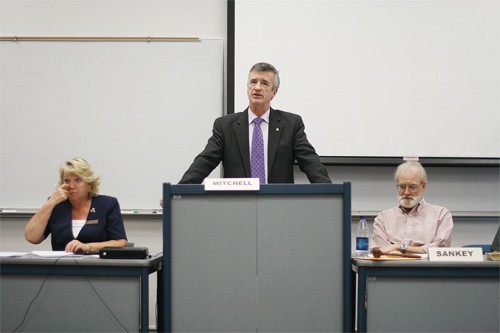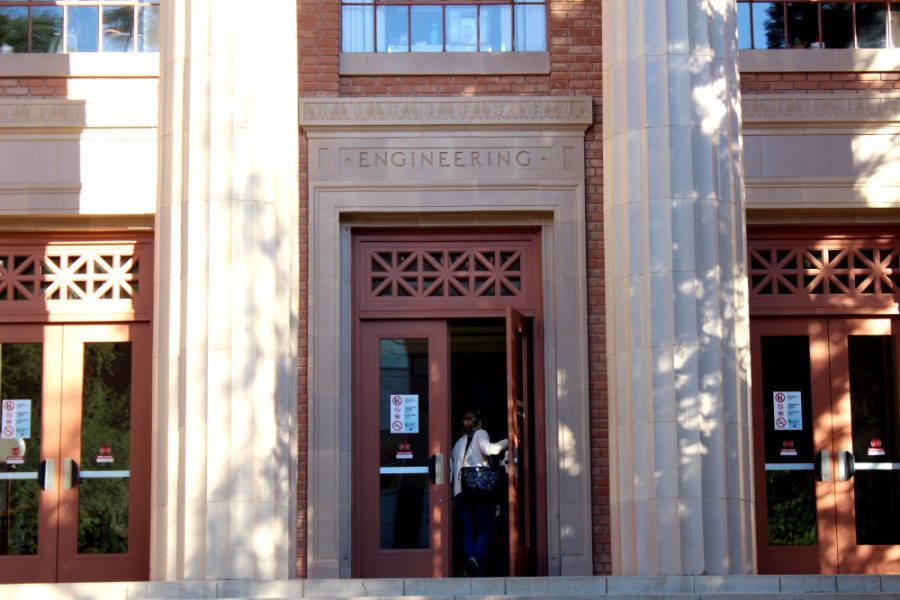The UA’s president and provost offered proverbial olive branches to the Faculty Senate on Monday in response to the recent faculty poll, and engaged in an open discussion of transformation issues with concerned senators.
The poll, conducted online from Sept. 18 to Sept. 25, revealed high distrust and low confidence in the two administrative leaders amongst the 30 percent of faculty members who cast a ballot.
Provost Meredith Hay, who said she had closely read and considered the comments on the poll, but committed generally to do “”a better job.””
“”I pledge to you with my core that I will do everything I can to communicate where I am,”” she said.
Hay also laid out a plan, which could begin as early as this week, to host a series of small biweekly meetings with department heads and faculty in a variety of colleges to discuss issues and decisions.
“”We have to do this as a family,”” she said.
Shelton reiterated his concern about what has come to be called the “”2012 fiscal cliff,”” the impending date after which the university will stop receiving federal stimulus dollars. The end of the budget crisis is not in sight and the UA can expect further tough times ahead, he said.
“”We’re already doing more with less,”” he said. “”I think we need to do less so we can do it extraordinarily well and maintain our quality.””
The senate allotted time in their meeting for an open discussion, led by former Faculty Chair Wanda Howell, of the implications of the faculty poll. The two main indications of the poll, Howell said, were that shared governance is not taking place and that there is no cohesive university-wide vision of what the UA is supposed to be.
“”We need to really collaborate,”” she said. “”We too often don’t do that very well.””
Howell called for a new vision of shared governance dependant on “”embracing collective wisdom,”” a term that was used repeatedly in the meeting to describe the inclusion of all the university’s intellectual resources in decision-making.
However, some faculty, led by Sen. Ralph Renger and Sen. Parker Antin, said they were unconvinced of the poll’s significance. Antin said he felt the implications of poll have been extrapolated.
“”I’m a little appalled by the poll,”” he said.
A more vocal minority has obscured the voices of a “”silent majority”” that approves of the president and provost, Renger said. He added that many faculty in his college, the College of Public Health, did not participate in the poll because they did not perceive a problem.
Regardless of the poll’s significance, the fact remains that differential budget cuts — one of the most contentious aspects of the transformation — have been made to departments based on unfair criteria, Howell said.
Recently, university departments have received cuts of 0, 2, 5, or 7 percent based largely on the ability of those departments to bring in grant money, a system some faculty view as unfair because it often disadvantages humanities.
The university needs to find a new metric for measuring excellence, Howell said.
“”If we want to invest in excellence, we have to help (Hay) identify that,”” she said. “”We can’t accept that there is a hierarchy of value in what we do as scholars.””









